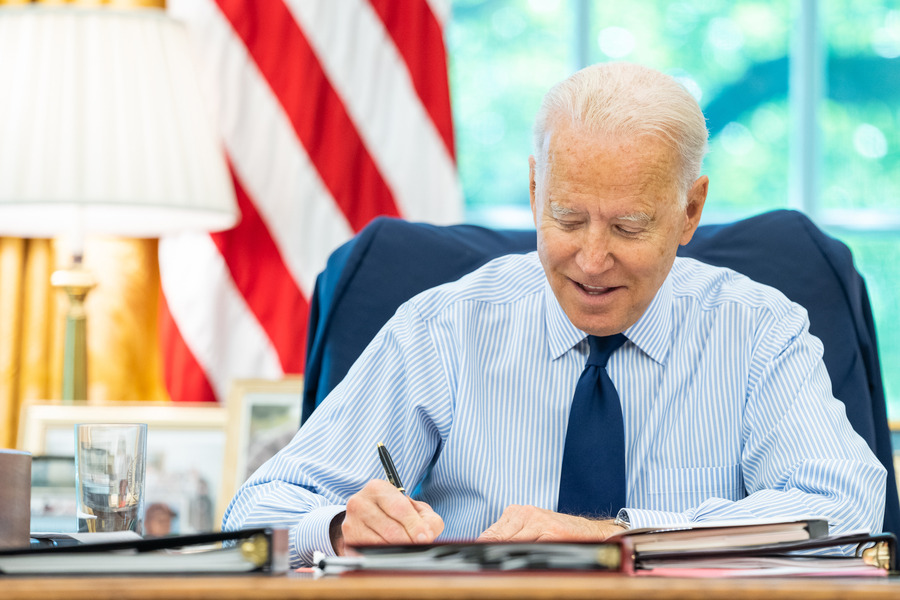Breaking News: D.C. Circuit Grants En Banc Rehearing in Al-Bahlul
Whoa. This is very big news---though what it means is far less clear.
The D.C. Circuit has granted the government's petition for rehearing en banc in the military commission case of U.S. v. Al-Bahlul. It thus appears that a majority of the court's seven active judges wish to explore the rulings of two three-judge panels, one in Al-Bahlul and another in a closely related case, United States v. Hamdan ("Hamdan II").
Published by The Lawfare Institute
in Cooperation With

Whoa. This is very big news---though what it means is far less clear.
The D.C. Circuit has granted the government's petition for rehearing en banc in the military commission case of U.S. v. Al-Bahlul. It thus appears that a majority of the court's seven active judges wish to explore the rulings of two three-judge panels, one in Al-Bahlul and another in a closely related case, United States v. Hamdan ("Hamdan II"). At first glance, this might seem to be good news for the government; the D.C. Circuit calls for review en banc only very rarely. But as we'll explain, it might prove to be the sort of win the government will quickly regret. There's more here than meets the eye.
By way of background, the Hamdan II panel concluded that, before 2006, material support for terrorism---the lone count of Hamdan's conviction---was not a war crime recognized by international law; and that military commissions thus lacked jurisdiction over the offense, as far as pre-2006 conduct goes. The statute that underlay Hamdan's trial, the MCA 2006, purported to codify only existing offenses, and not to create any new ones.
The government accepted that Hamdan II's reasoning compelled reversal of Al-Bahlul's conviction for standalone conspiracy, and thus asked the three-judge panel in his case to enter judgment to that effect. This wasn't a surrender on the United States' part; instead, the move cleared the way for the government to seek review of both cases by the full appeals court---which it has today obtained. These days, the Justice Department acknowledges that neither freestanding conspiracy (in Al-Bahlul's case) nor material support (in Hamdan's) were recognized under the international laws of war before 2006. But it nevertheless argues that both were recognized by a body of domestic law, the “U.S. common law of war”---and were thus properly within the commission's jurisdiction.
So on the surface, getting a chance before the full court is a big win for the government. But this may be a case where the government will conclude that it should have been careful what it wished for. Intriguingly, the court's order also requires the parties to brief---in addition to issues they've raised in their submissions thus far---the following questions:
In other words, the full court is not thinking just about the questions the government has asked it to consider. It is also thinking about whether the law may be more restrictive than it held in Hamdan II. And remember, the Hamdan II panel was a very conservative one---though two of its members, Judges Sentelle and Ginsburg, will not participate in Al-Bahlul's en banc reconsideration. (D.C. Circuit rules sometimes permit senior judges to take part in en banc rehearings, but only when the senior judges served on the case's original three-judge panel. But in Al-Bahlul, the three-judge panel was comprised only of "active" status judges---judges Henderson, Rogers and Tatel.) The seven-member court, particularly given recent retirements, includes three more liberal judges and the third conservative judge from the Hamdan II panel---who happened to write the Hamdan II opinion. Of course it's impossible to know what, exactly, today's order portends. But don't be too surprised if what emerges from is law even less favorable to the government than the rulings for which the government sought review. We'll hear more at oral argument, which is set for September 30. [This post was updated on April 23](1) For purposes of considering whether the Military Commissions Act of 2006 may permissibly proscribe pre-2006 conduct that was not a war crime triable by military commission under 10 U.S.C. § 821 before 2006, does the Ex Post Facto Clause apply in cases involving detainees atGuantanamo?(2) Assuming arguendo that, as Hamdan II concluded, the Military Commissions Act of 2006 does not proscribe pre-2006 conduct that was not a war crime triable by military commission under 10 U.S.C. § 821 before 2006, and that 10 U.S.C. § 821 permits trial by military commission only for war crimes that were proscribed under the international law of war at the time of the offense, was conspiracy a violation of the international law of war at the time of Bahlul's offense?
Benjamin Wittes is editor in chief of Lawfare and a Senior Fellow in Governance Studies at the Brookings Institution. He is the author of several books.
Wells C. Bennett was Managing Editor of Lawfare and a Fellow in National Security Law at the Brookings Institution. Before coming to Brookings, he was an Associate at Arnold & Porter LLP.






